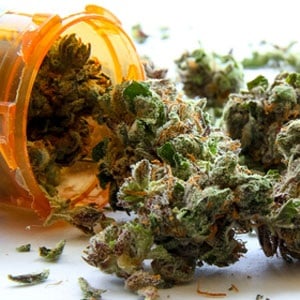
Epilepsy is the fourth most common neurological disorder in the world and affects people of all ages.
Epilepsy, also known as "seizure disorder", is a chronic disorder in which a person has recurrent, unpredictable and unprovoked seizures; these seizures can vary from being brief and almost unnoticeable to lengthy and strenuous.
A number of studies have shown that substances from the cannabis plant have helped animals suffering from epilepsy. However, there is limited information on its effectiveness in humans.
Read: Recognising the hidden signs of epilepsy
Last year, 5-year-old Charlotte Figi became the poster-child for a marijuana treatment that is now called "Charlotte’s Web", named after Figi.
Medical marijuana
Charlotte’s Web is a strain of marijuana low in tetrahydrocannabinol and high in cannabidiol.
Figi grew up with Dravet syndrome, a severe type of epilepsy. As a last resort, her parents decided to try giving her medical marijuana, which ended up helping her exponentially; Figi’s seizures markedly decreased from 50 convulsions a day to two to three convulsions a month.
Read: Treatment of epilepsy
Some doctors claim that those taking cannabidiol receive the medicinal effect of cannabis without the intoxication.
The oil is created by extracting the mixture from cannabis using a rotary evaporator and mixing it with olive oil, which is then ingested.
Schedule I drug
Though many researchers and physicians are sceptical about cannabidiol use, due to the lack of testing in controlled, scientific studies, many of them are wary of completely disregarding the results.
Read:Types of epilepsy
Studies on cannabidiol have been limited because of cannabis’ classification as a Schedule I drug. Schedule I drugs have high potentials for abuse and are defined by having no medicinal qualities and a lack of accepted safety of use. Interestingly, cannabidiol is under the same classification as heroin.
Additionally, cannabidiol products are often not tested, and every batch also tends to contain different levels of cannabidiol. Therefore, oftentimes, families have to take the drugs to a third party to check for e.g. pesticides and tetrahydrocannabinol.
Read more:
Infertility in epileptic women
Epilepsy linked to schizophrenia
The outcome of epilepsy
Sources:Epilepsia, San Gabriel Valley Tribune and National Institute of Neurological Disorders and Stroke




 Publications
Publications
 Partners
Partners














